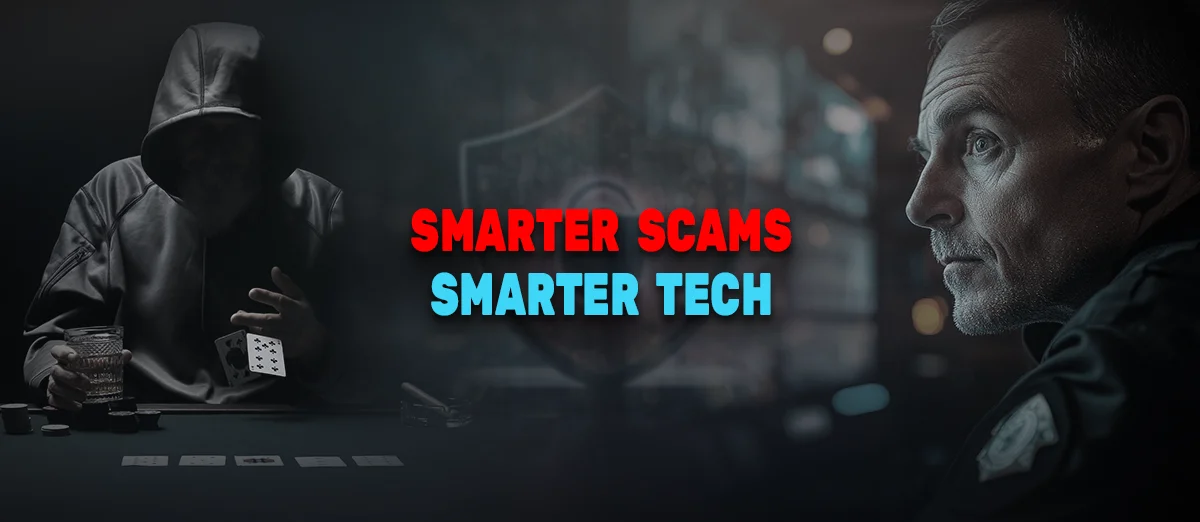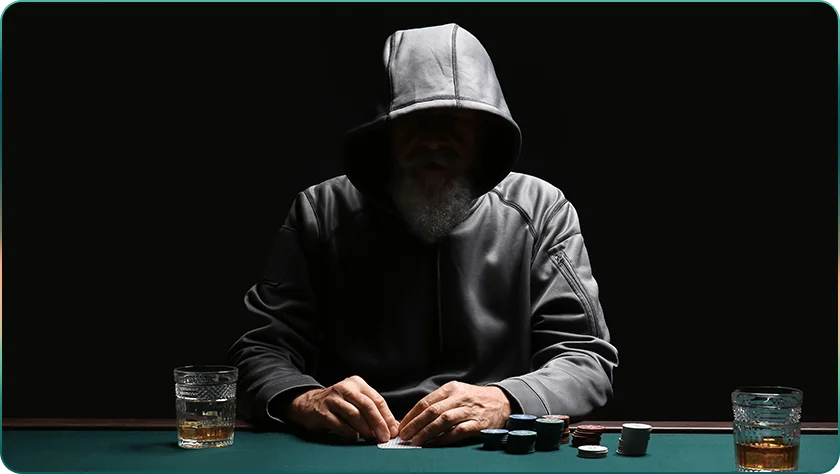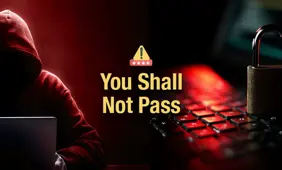R. Paul Wilson On: Cheating the House Digitally and the Future of Casino Security

The greatest threat to the integrity of casino games comes from crooked dealers, though even careless dealers or sloppy processes can pose significant risks. Recently, a belated concern has emerged regarding players using tiny hidden cameras to spy on card values before they are revealed. By exploiting weak dealers and security loopholes, advantage players can gain insider information that gives them a considerable edge when placing bets – a tactic that has long been associated with casino cheating.
In July 2024, two men were arrested at Casino Barrière Enghien-les-Bains in Paris for a high-stakes scam that earned them €200,000 in a single night. They were part of a larger network targeting European casinos. Although their story made headlines, it was largely overshadowed by Olympic news, leaving key details – such as the specific casino games they cheated on – unclear. Initial speculation in the poker community suggested a poker scam, but WIRED later revealed that both blackjack and Ultimate Texas Hold'em were involved. Their scheme was straightforward: one player used a modified smartphone placed near the dealer's shoe, while his partner concealed a tiny camera in his clothing to capture live card footage. This footage was then streamed to an accomplice in a car, who relayed the information through a magnetically removable earpiece.
This little bit of homemade ‘Mission Impossible’ was described as ‘next level’ yet, as you’ll see, I was employing the same tactics with much more cumbersome gear two decades ago – and the real dangers from technology are yet to come.
My friend Willy Allison has been warning online casino operators in the USA for years about the emerging threat of technology, which is now pervasive in modern life. With nearly fifty billion cameras recording footage globally, it is becoming alarmingly easy to conceal or overlook video devices.
Naturally, savvy casinos are concerned, but with countless other issues to address, modern digital scams like the one in France are likely to increase unless effective measures are implemented.
How We Outsmarted Casino Surveillance 20 Years Ago
Hidden camera crews have been cheating casinos since they could hide cameras in bags, wheelchairs, or fake limbs. For the Takedown TV show, I demonstrated this for a casino in Lake Tahoe with remarkable effect. We employed an actress to pose as a small-stakes player at a baccarat table where my crew was secretly recording cards before they were shuffled using a house procedure that we could predict with custom software. The challenge was that we couldn’t have anyone accessing the video feed inside the casino, knowing that any players using our advantage would be quickly targeted for an unfriendly interview.
The plan involved me playing the big player to attract attention; once I was arrested, another player would take over and place large bets based on specific outcomes. By the time they finished trying to rattle me, we would already be outside with their money and our secret equipment.
However, we needed a way to signal the big players about what to bet from a van parked outside, which was monitoring the video being streamed outside by two other team members with transmitters. The spotted cards were fed into a computer running a baccarat prediction program that indicated whether to bet on "player," "banker," or "tie".
To be clear, if anyone discovered our camera or two roving transmitters, we would be in serious trouble. Knowing that security would focus on the winning players, we tag-teamed the table, using those players as a distraction from our actual method.
The most important question was: how do we signal those players whether to bet "player", "banker," or "tie" on each round? The solution was simple yet highly effective. Each of the big players carried two cellphones: a Blackberry in one pocket and a lipstick-sized mini-phone in the other. In the van, we had two cellphones for each player, which, when activated via a device we built, would dial either one or both of the players' phones. Thus, if the left pocket vibrated, I would bet on "player" to win; if the right buzzed, I would bet on "banker" to win; and if both phones rang, I would bet on a tie.
To execute this plan, we had other players at the table slow the game between rounds while our camera-equipped actress made small, inconspicuous bets, remaining virtually invisible to security as they struggled to decipher my actions.
This was twenty years ago, but today such an approach could easily be adapted into an app. Any modern cellular device can receive signals from multiple communication networks, allowing vibrations to be patterned to avoid detection, and signals can even be conveyed through subtle visual cues on a phone's screen.

When the House Can’t See: The Hidden Tech Changing the Game
What makes the baccarat video strategy particularly interesting is that the cameras we used when employing this strategy in the real world (in Asia) weren’t even in the building; we relied on a skylight and a nearby condominium with a large zoom lens. Inside the casino, when repeating the attack for the TV show, the only person ever interrogated was me, and when the two cellphones were removed from my pockets, no one paid them any mind.
Today, our watches, phones, smart glasses, and any future implants, especially with the rise of AI, could record and process everything a player sees without the need for bulky equipment and multiple people.
Hidden cameras have become smaller, more discreet, and easier to obtain, often disguised as everyday objects with live-streaming capabilities. From spy glasses and key fobs to button cameras and Bluetooth earpieces, these smart devices seamlessly blend into a casino setting, making detection increasingly difficult. While such tools have long been used for covert surveillance and advantage play, they are now being replaced by even more sophisticated and practical solutions, pushing the boundaries of traditional casino security.
It's important to note that these were not necessarily the tools of seasoned casino advantage players, but often the reckless gambles of individuals willing to risk their freedom for an easy win.
Imagine what could happen if all one needs is an app and a pair of widely available consumer smart glasses.
What Are the Solutions?
Willy suggests the following to casino operators: Train, Remove, Ensure.
- 1. Train: Capturing the dealer’s hole card is a growing threat; land-based casinos must take proactive steps to prevent exposure. Train dealers to deliver cards properly without revealing their values. Eliminate poorly designed shuffle machines that force dealers to expose cards. Ensure supervisors and surveillance teams regularly inspect card delivery, report vulnerabilities, and retrain offenders as needed.
- 2. Remove: Ban electronic devices at gaming tables, including cell phones, to prevent hidden camera usage. If necessary, install under-table shelves for storage, treating the layout like a sports field – no foreign objects during play.
- 3. Ensure: Know the game. While wearable concealed cameras pose a concern, the best defense lies in well-trained supervisors and surveillance teams who understand gameplay. They should recognize player decision-making patterns that signal cheating or advantage play. Training should include hands-on experience to sharpen their ability to detect suspicious behavior.
I agree with all these points, but it’s not easy to keep dealers and their managers aware of all possibilities in this ever-changing technological battlefield. The most effective defense is to make it extremely difficult to employ devices in plain sight; thus, all smart glasses, phones, and smartwatches must be banned from the gaming floor, not just from players at the tables.
This would force individuals using electronics to create detectable solutions, making it harder for them to claim their devices were never intended to assist with the games. However, consider the challenge of enforcing such a rule in an environment where thousands of people pass through every hour, and any player or spectator could be concealing digital deception.
I have clear ideas on how to implement and enforce such rules, but that’s a long and complicated story that casinos should pay for. In the meantime, be cautious about what you wear and carry and how you handle your devices around gaming tables – you might attract unwanted attention.





Review this Blog
Leave a Comment
User Comments
comments for R. Paul Wilson On: Cheating the House Digitally and the Future of Casino Security